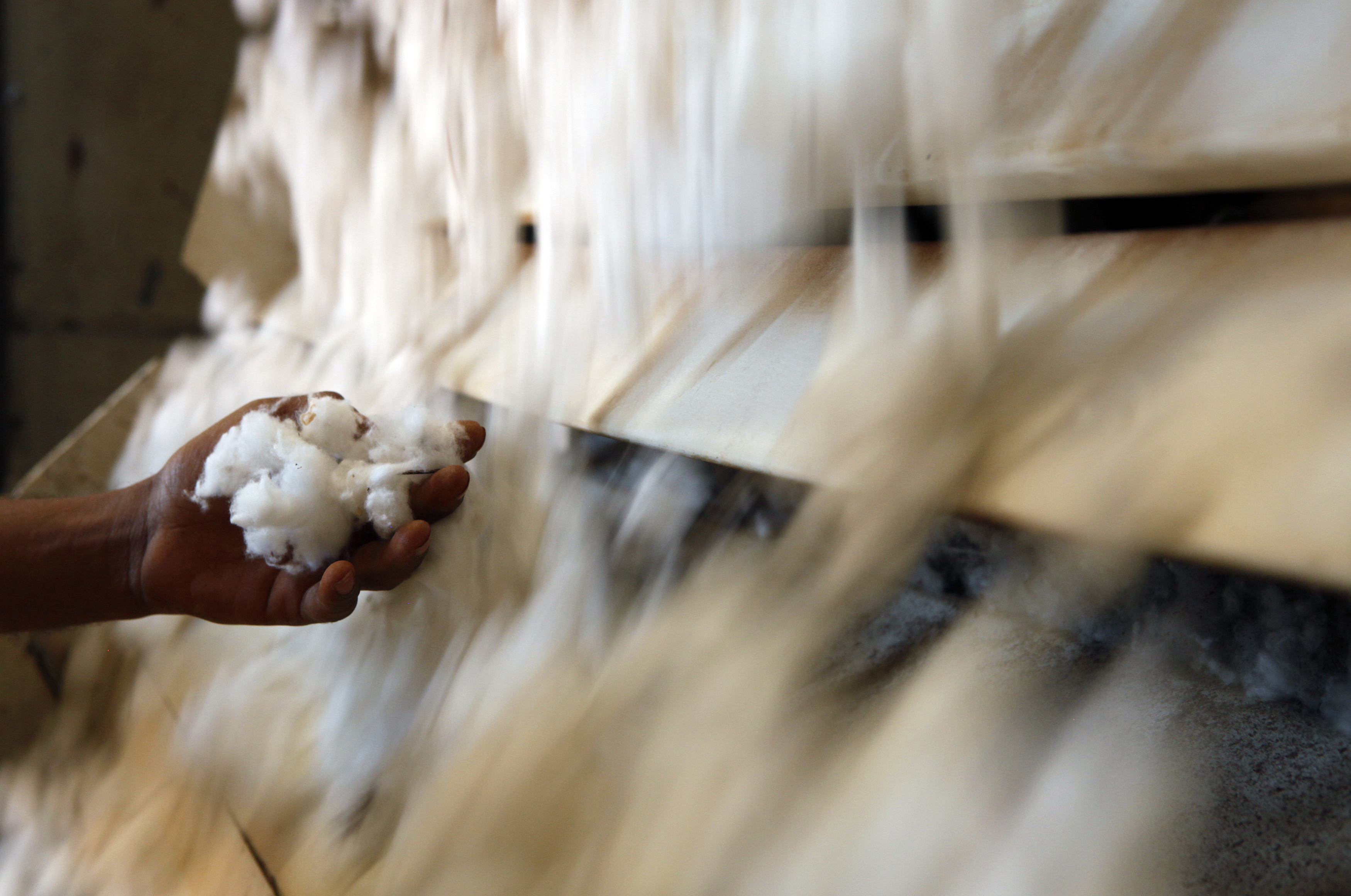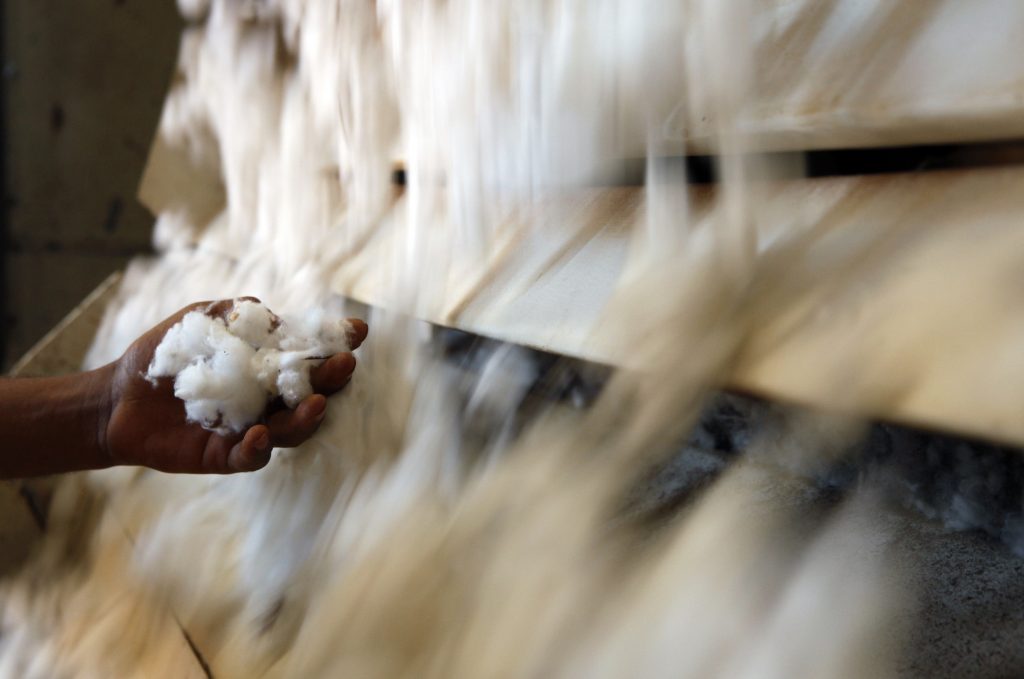
Brazilian textile association official says action on forced labor may hurt exports
The US Department of Labor’s decision to place Brazil on a list of countries where forced and child labor are practiced is “unfair” and could have an adverse impact on the South American nation’s exports, said an official with Brazil’s textile association.
Brazil’s image has been tarnished because the department, rather than singling out specific companies, lists the entire country, Renato Jardim, Superintendent of Industrial and Economic Policies at the Brazilian Textile and Apparel Industry Association (ABIT), said in a phone interview with the New Atlanticist.
A retailer will now “think twice” about buying from Brazil, he added.
A 2014 Department of Labor report finds forced and child labor in Brazil, with children working in agriculture, mining, and the garment industry.
It notes that while Brazil’s definition of forced labor is broader than International Labor Organization (ILO) Conventions, “the Penal Code’s definition of trafficking in persons does not cover human trafficking for the purposes of labor, and only penalizes human trafficking cases in which the victim has been moved.”
Latin America is second to Asia among regions of the world that have the highest number of cases of forced and child labor, according to the ILO.
The Department of Labor does acknowledge the “significant advancement” in the Brazilian government’s efforts to “eliminate the worst forms of child labor” in 2014. The government, for example, created mobile inspection units to ensure compliance with labor laws and job training and employment programs for youth older than sixteen.
“Our standards and bars are already very high,” said Jardim.
Renato Jardim spoke by phone from São Paulo with the New Atlanticist’s Ashish Kumar Sen. Here are excerpts from the interview.
Q: The US Department of Labor listed Brazil among the countries where forced and child labor are still practiced. What are the practical implications of this listing specifically for the textile industry? Has this hurt Brazil’s textile exports?
Jardim: We believe that it was very unfair to be listed. There is no direct implication of being on the list at present. It is a new list, but we think that in the near future it will have a direct impact.
Compliance is a huge trend in the global textile industry. Companies, retailers, buyers, importers are more and more concerned about where they source their products, what are the practices, whether they care about labor and the environment. So when a retailer sees Brazil listed as a forced labor user in garment production they will think twice before buying from Brazil. It is the image of the whole country and the whole industry in the country that is affected. This is the reason we believe the listing is unfair. It lists the entire sector, not the company that violated the law.
Q: As Latin American countries that are part of the Trans-Pacific Partnership (TPP) — Peru, Mexico, and Chile — raise their labor standards, what impact do you expect that to have on labor practices in Brazil?
Jardim: Brazil already has one of the toughest labor laws in the world. I have heard from the ILO themselves that Brazil is a model to be followed with regards to labor laws. We are very labor protective. We go even further than the ILO in many definitions and in many conventions that they have. For instance, the forced labor convention defines forced labor in a few standards, but we here in Brazil go further. Our standards and bars are already very high. As the TPP sets the bar, we are already there and we are over that bar.
Q: Do you believe Brazil will benefit from joining the TPP?
Jardim: We need to be much more active in the area of free-trade agreements. We have free-trade agreements with all South American countries and are now trying to negotiate FTAs with Mexico and the European Union. But it is too few for a country of the size and importance of Brazil.
We have always been very domestic-market driven. In textiles and clothing, we are the fourth-largest producer in the world — the largest integrated textiles and clothing industry outside of Asia. But our exports account for a little more than 1 percent of our total invoice. Brazil is making a huge effort to export more. There is huge potential to be explored. FTAs would play an important role and the TPP would be one of the alternatives that we would have that would be beneficial. We need to know more about it.
We believe that, especially, in the case of the United States, Canada, Mexico, we can gain from bilateral trade. And they, too, can come more to Brazil because their share in our overall imports is low. They can also benefit from Brazil being part of the agreement.
Q: What steps is the textile industry in Brazil taking to address the problem of forced labor?
Jardim: Our problem of forced labor happened with immigrants coming from other South American countries. The garment industry has a very low barrier to enter. With very small investments you can run a sweatshop.
An immigrant comes to make as much money as possible and to spend as little as possible so he can send money home to support his family. They are finding in the garment industry a way to do that — a way to work without papers. This violates Brazilian laws.
It is not an easy challenge to face. This is a challenge that needs to be faced by the government and by the private sector working together.
We already have the laws, but that is not enough. We need to bring to these people an awareness that we do have laws that need to be followed and that they do have rights. South American immigrants in Brazil have rights to work in Brazil. We have agreements in South America that allow them to get papers to work. It’s not like an immigrant in the United States where they don’t have those papers and they have to apply and go through a huge process.
We are also working with private sector retailers in the certification process — compliance and diligence. The retailers are requesting a certification process for the manufacturers to be able to supply to them. Making this certification available to more and more retailers will be a good thing.
At ABIT we formed a committee gathering manufacturers, retailers, the ministry of labor, and ABIT to talk about these issues and how to address each one of them. We are talking about an industry that manufactures 6.5 billion pieces of clothing a year. Of course these 6.5 billion pieces are not manufactured by forced labor. That would be unthinkable. But even a few of these pieces being produced in a condition that violates our law is one thing that no one of us can agree to.
We are talking to the ILO’s Brazil office to work on specific projects to provide immigrants with awareness. They have their own newspapers, their own radio stations, so we need to be very pragmatic about reaching those people.
There are many concrete things that are happening that we showed to the Department of Labor. There are violations of the law here in Brazil as there are in the United States, in Europe, in Japan, in Asia or anywhere else. It is what you do to fight against those violations that matters.
We are not against the list. No way. We are in favor of it. But we are against the way that we were treated in the list because listing Brazil and the whole garment sector of Brazil in the list put us at the same level as countries that don’t have even close to what we have in the form of laws and law enforcement.
Ashish Kumar Sen is a staff writer at the Atlantic Council.
Image: An employee holds cotton as it is being processed by machines at Falavinha farm in Deciolandia, in the central Brazilian state of Mato Grosso, on Sept. 7, 2011. A US Department of Labor report says forced labor is practiced in Brazil. (Reuters/Paulo Whitaker)
